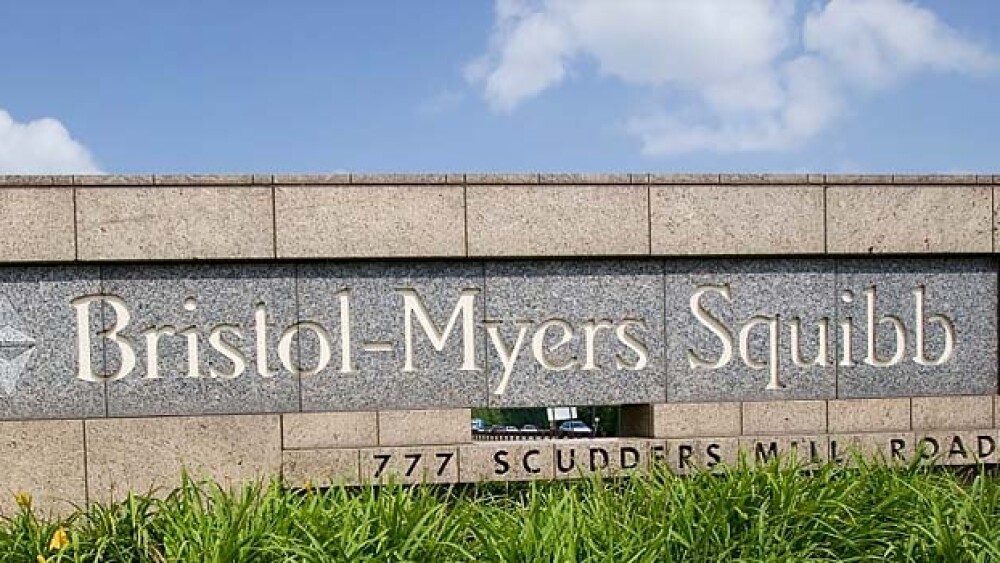Bristol-Myers Squibb is teaming up with Cancer Research UK and the Francis Crick Institute to create guidelines for immuno-oncology therapy development. This “rule book,” will focus on lung cancer treatments.
Bristol-Myers Squibb is teaming up with Cancer Research UK and the Francis Crick Institute to create guidelines for immuno-oncology therapy development. This “rulebook” will focus on lung cancer treatments.
The project is called RUBICON and has 4.2 million pounds in funding. Bristol-Myers Squibb is providing 2.4 million pounds of the funding. Charles Swanton, Cancer Research UK’s chief clinician and group leader of the Francis Crick Institute, will lead the project. In a statement, Swanton said, “Biological therapies, including immunotherapies, are set to transform the way we treat patients and the RUBICON study will bring us a step closer to this vision.”
Swanton went on to say, “When we see patients with hard-to-treat cancers like lung, we struggle to keep up with the speed at which tumors evolve, become aggressive and resistant to treatment. Our research so far has uncovered many of cancer’s evolutionary secrets, opening opportunities for us to develop new and targeted biological therapies, and understand how they can be combined to maximum effect.”
Swanton and his team at the Cancer Research UK-Lung Cancer Centre of Excellence at University College London (UCL) have built the foundations of the project as part of their TRACERx and PEACE studies, which analyzed tumor samples.
The researchers at Francis Crick Institute will use their technologies, such as deep learning and artificial intelligence (AK) to analyze tumor samples and data from TRACERx and PEACE. Then will then attempt to map an atlas of immune cell activity as observed across tumor regions. This will provide insights into tumor-immune system interactions and the evolution of the microenvironment.
TRACERx (Tracking Cancer Evolution through therapy (Rx)) is Cancer Research UK’s biggest investment in lung cancer research. It took place over nine years, focused on studying the evolution of lung cancer in real time and in depth. They followed lung cancer patients from diagnosis all the way to either relapse or cure after surgery.
PEACE (Posthumous Evaluation of Advanced Cancer Environment), led by UCL via the Cancer Research UK Lung Cancer Centre of Excellence, is a national study in the UK—the first ever—to collect blood and tissue samples from cancer patients who died. This resulted in insights into the final stages of the disease.
“This project is a fantastic example of the industry and charity sectors working together to support world-class discovery science for the benefit of patients,” stated Veronique Birault, head of translation at the Francis Crick Institute. “This project wouldn’t be possible without Cancer Research UK’s significant investment in research, amplified by the complementary expertise of three different cancer labs collaborating at the Crick. This new funding will allow our scientists to map out the immune landscape around lung tumors to develop better combination therapies for patients.”
Earlier this week, Bristol-Myers Squibb and LabCentral, a Cambridge, Mass.-based shared laboratory space, announced the two winners of the Bristol-Myers Squibb’s 2018 Golden Ticket for LabCentral. Because it is a platinum sponsor, Bristol-Myers Squibb could choose up to two innovative life science companies per year for Golden Tickets. These cover the cost of one lab bench for one year at LabCentral’s facility at Kendall Square in Cambridge.
The two companies receiving the sponsorship were ReviveMed Technologies and Strand Therapeutics. ReviveMed is using network-based machine learning to analyze untargeted metabolomic data to determine if already existing therapies can be used to treat other diseases. Strand Therapeutics is building a genetic programming language of RNA to precisely control gene expression that it hopes will revolutionize immunotherapies.





